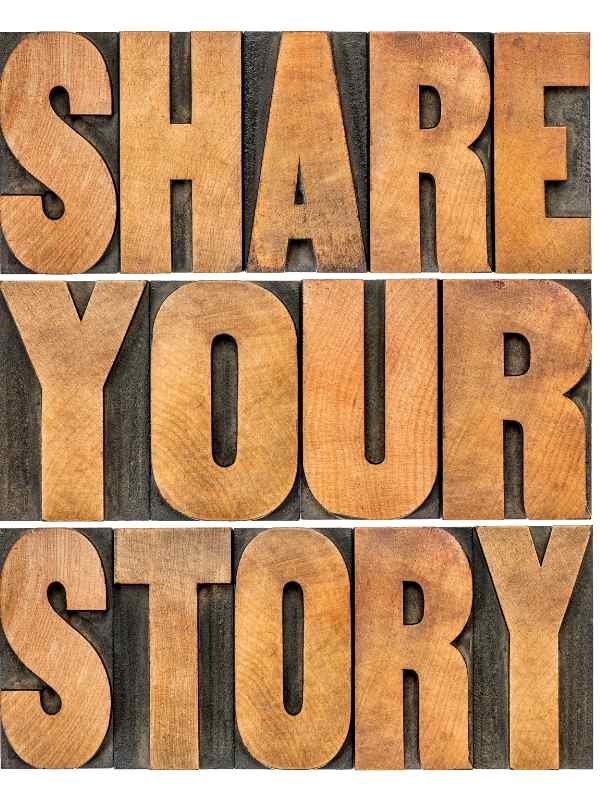You are about to read: Celebrating your story: How your unique journey adds value (even if you’re just starting out).
A friend once told me about a season in her life when everything felt slow. She had just moved to a new city, didn’t know many people, and was trying so hard to figure out what direction her life should take.
Some days, she felt like everyone else was moving faster, yunno friends getting promotions, starting families, or, as she said, “figuring things out so quickly”, while she was still trying to settle in and understand what came next.
But as we talked more often, it became clear that even though she was still trying to figure things out, her next step, her confidence, her sense of direction, something was already building inside her.
The courage to start over, lessons from the challenges she faced, and the quiet mindset shift happening in the background were slowly doing their work. She didn’t feel completely sure of herself yet, but she was becoming a little more patient, a little more aware of what she wanted, and a little more balanced each day.
She didn’t notice it at first, but those tiny shifts were forming a steady foundation, and the small choices she made daily were quietly shaping her self-worth and helping her grow.
A lot of us go through this, in Lagos, Toronto, or New York. We look around and feel behind, forgetting that finding confidence takes time and doesn’t happen in a straight line.
Your personal growth journey doesn’t need to be loud or perfect to matter. Even if you’re still figuring things out, your story already has value, right where you are. Here’s something else we wrote for you Personal Growth for Newcomers in Canada: Building a Strong Future
Why Your Unique Journey Is Your Biggest Advantage (Not a Setback)

It’s easy to look at your journey and feel like you’re behind, especially when your path hasn’t followed the “typical” route. But embracing your journey is one of the most powerful things you can do for your personal development.
Every setback, every slow season, every unexpected turn isn’t a failure, it’s a building block.
Failures teach resilience, slow seasons teach patience and adaptability, and even the everyday moments of reflection build empathy and self-awareness.
Learning how to own your story means recognizing that these experiences give you skills and perspectives that others may not have. A growth mindset helps you see every challenge as a lesson, and every detour as an opportunity to strengthen your capabilities.
Employers, communities, and even personal relationships value this kind of depth, the kind that can’t be learned from a textbook or a checklist. Your journey, with all its ups and downs and slow seasons, isn’t holding you back; it’s shaping you into someone uniquely equipped to make a difference.
Feeling Like You’re Starting From Scratch? Here’s Why That Season Matters

Starting over in life can feel scary. Maybe you just moved to a city where you don’t know anyone, left a job you thought would last forever, or decided to pursue a dream you’ve been putting off for years. It’s easy to look around and feel like everyone else is ahead while you’re still trying to find your footing. But this season of starting fresh is other opportunity.
When you’re starting out, you get a chance to rebuild confidence from the ground up. You can reflect on what truly matters, experiment with new approaches, and create habits that fit who you are now.
This period also gives you clarity that people who’ve been on a set path for years rarely get, the chance to rethink priorities, learn without pressure, and uncover opportunities that others might overlook.
Every new beginning comes with its own lessons. The uncertainty you feel isn’t a weakness; it’s a space for growth. Embracing this season allows you to discover strengths you didn’t know you had and build a foundation that will support bigger goals in the future. Starting over isn’t falling behind, it’s setting yourself up to move forward with purpose.
How to Recognize the Value You Bring (Even When You Don’t See It Yet)

It’s easy to doubt yourself when you don’t have a long list of titles or achievements, but your value isn’t only measured by formal accolades. The first step to discover your strengths is to look at your lived experiences. Every challenge you’ve faced, every small success, and even the setbacks carry lessons and skills that are uniquely yours.
Ask yourself: What value do I offer in situations where I’ve helped, solved problems, or made a difference, no matter how small? Reflect on moments when people turned to you for advice, support, or guidance. Those instances reveal strengths that don’t show up on a resume but are essential in real life and work.
A simple personal strengths assessment can help you put words to these abilities. Make a list of the skills, traits, and qualities you consistently use, like problem-solving, empathy, persistence, or adaptability. Comparing experiences rather than titles gives you a clearer picture of the unique value you bring. Over time, recognizing and naming your strengths will build confidence and help you own your story fully, even if you’re still early in your journey.
You may want to read this next:
Sleep, Stress & Transitions: Why You Need Emotional Rest During Major Life Moves
When You Feel You’re Not Enough: Rewriting the Self-Narrative with Empathy-Driven Change
The Quiet Pause: How Brief Moments of Stillness Reset Your Inner Calm
Emotional Reset for Newcomers in Canada: A Practical Guide
Ways Your Story Adds Value in Relationships, Work, and Community
Your story isn’t just about you, it’s a tool for connection, influence, and impact. Learning how to add value through your experiences starts with personal storytelling. When you share your journey authentically, people see your struggles, growth, and perspective, and that builds trust and morale instantly.
In relationships, opening up about your challenges and lessons can create deeper bonds. People feel understood, supported, and more willing to share themselves, which strengthens friendships, partnerships, and networks.
In the workplace, your story can highlight unique skills and resilience, showing colleagues and employers why you bring a fresh perspective and a problem-solving mindset.
Even in your community, telling your story allows others to learn from your experiences. Authenticity helps you influence, inspire, and mentor in meaningful ways, because people are drawn to real experiences over polished, generic narratives.
By embracing building meaningful connections through your story, you’re not just sharing yourself, you’re creating value, opening doors, and leaving an impact that goes beyond achievements or titles.
The Power of Small Beginnings: Why Progress Matters More Than Perfection
It can be hard to move forward waiting until everything feels “perfect” before taking a step forward. But real growth comes from overcoming self-doubt and taking consistent, small actions, even when they feel imperfect.
Focusing on progress over perfection allows you to learn, adapt, and gain momentum without being paralyzed by fear or comparison.
Every small effort builds skills, shapes expertise, and gradually establishes credibility. Each choice you make, no matter how minor it seems, contributes to building confidence in your abilities and reinforces that you are capable of growth.
Over time, these tiny steps compound, showing that forward motion matters far more than flawless execution. Your beginnings may be small, but the impact of consistent effort is powerful, and it sets the stage for bigger accomplishments down the road.
How to Tell Your Story With Confidence (Online and Offline)

Sharing your journey can feel intimidating, especially when you’re just starting out. But celebrating your story: how your unique journey adds value starts with learning how to tell your story in a way that feels authentic and confident. This is a key part of personal branding for beginners and essential for building confidence in both professional and personal settings.
Start by identifying the key moments in your journey, challenges you’ve overcome, lessons you’ve learned, and skills you’ve developed.
Then, craft a simple, clear narrative around these points. For online platforms like LinkedIn, focus on achievements, learning experiences, and how your story shapes the value you bring to teams or communities. In networking or personal introductions, highlight relatable experiences, your growth, and what drives you, keeping it concise and genuine.
Using this approach, your story becomes a tool, not just a narrative. You’re not just sharing events; you’re showing how your unique journey adds value, builds trust, and leaves a lasting impression.
By practicing regularly, you’ll gain confidence, refine your message, and feel more comfortable celebrating your story in any setting.
Stop Comparing Yourself: How to Stay Focused on Your Own Journey

We often find ourselves comparing to others, especially when social media and everyday life make it feel like everyone else is ahead. Falling into the comparison trap can drain your energy, make you doubt your abilities, and distract you from the unique value you bring.
The first step in how to build confidence is recognizing that your journey is different, and that’s a strength, not a weakness. Instead of measuring yourself against others, focus on your own progress and milestones. Celebrate small wins, reflect on lessons learned, and set goals that align with your personal growth.
Shifting your mindset also means embracing self-awareness: acknowledging what you’ve accomplished, what you’re learning, and how far you’ve come. Comparison may show what others are doing, but it doesn’t define your worth or potential.
By turning your focus inward, you reclaim energy, build confidence, and appreciate that your story, with all its unique twists and turns, has value right where you are.
What to Do When You Feel Behind or “Not Good Enough”

It’s normal to feel like you’re falling behind or that you’re not good enough, especially during slow seasons or when facing new challenges. Celebrating your story: how your unique journey adds value starts with understanding that these feelings don’t define your worth, they’re signals that you need to pause, reflect, and reset.
Here are some practical steps to navigate these emotional dips:
- Acknowledge the feeling without judgment – Recognize the self-doubt and insecurity without letting it control your actions.
- Reframe your mindset – Remind yourself that everyone’s journey is different. Slow periods are opportunities to learn, grow, and build resilience.
- Practice self-doubt solutions – Journaling, mindfulness, or talking with a mentor can help you see your strengths and progress clearly.
- Focus on small wins – Celebrating even minor achievements reinforces competence and builds self-esteem.
- Challenge imposter syndrome – List your skills, experiences, and lessons learned. Recognize that your story brings unique value that others can’t replicate.
How to Keep Growing When You’re Still Figuring Things Out
Even when you’re still figuring things out, growth doesn’t have to wait. Embracing small, consistent steps is key to building direction, resilience, and confidence. This section serves as a beginner’s guide to growth, offering practical personal growth tips and simple self-improvement habits you can start today.
- Set micro-goals – Break bigger ambitions into small, achievable steps. Each completed task reinforces progress and keeps momentum going.
- Reflect daily – Take a few minutes to jot down lessons learned, challenges faced, and wins from the day. Reflection builds awareness and strengthens decision-making.
- Adopt learning routines – Read, listen to podcasts, or take short courses. Regular learning helps you gain skills and insights without feeling overwhelmed.
- Prioritize self-care – Physical and mental well-being provide the energy and focus needed for consistent growth.
- Celebrate small wins – Recognizing progress, no matter how minor, reinforces self-improvement habits and keeps motivation high.
Even when your path isn’t perfectly clear, these routines create structure, build resilience, and help you move forward with purpose. Growth isn’t about having all the answers , it’s about showing up for yourself, day after day, and trusting that your journey is shaping your future.
Your Story Is Still Being Written: How to Celebrate Your Progress Today

It’s easy to focus on what’s next and forget how far you’ve already come. Celebrating small wins is essential for building confidence and keeping motivation alive.
Take a moment each day to recognize your efforts, no matter how minor they seem. This simple act of self-validation reminds you that progress isn’t always dramatic, it’s the accumulation of consistent effort over time.
Practicing gratitude can also help you see the value in your journey. Reflect on lessons learned, obstacles overcome, and moments where you showed courage or growth. By acknowledging these, you reinforce a positive mindset and strengthen your confidence.
Remember, your story isn’t finished yet. Every step, every decision, and every small achievement adds to the foundation of who you’re becoming. Taking time to celebrate your progress today ensures that you continue to grow with purpose, pride, and self-awareness.
FAQ: Celebrating Your Story and Building Confidence
1. Why does my story matter if I’m just starting out?
Your story matters because it’s uniquely yours. Even if you’re just starting out, your experiences, lessons, and perspectives shape the value you bring to relationships, work, and your community. Every challenge you’ve faced or decision you’ve made contributes to personal growth and helps you stand out in ways titles or credentials cannot.
2. How do I stop feeling behind in life?
Stop comparing yourself to others and focus on your own journey. Avoid the comparison trap by setting personal goals, celebrating small wins, and reflecting on your progress. Shifting your mindset to value growth over perfection helps you regain confidence and see that your path is unfolding at its own pace.
3. How do I add value when I have little experience?
Adding value doesn’t require years of experience. Start by identifying your strengths through a personal strengths assessment, sharing your story authentically, and offering support or insights where you can. Your perspective, curiosity, and willingness to learn can create meaningful impact even in early stages.
4. How do I build confidence in my personal journey?
Confidence grows from consistent effort and self-recognition. Practice celebrating small wins, reflect on lessons learned, and acknowledge the progress you’ve made. Engaging in self-improvement habits and embracing personal growth tips strengthens your resilience and reinforces that your journey, no matter how early, is valuable and impactful.


